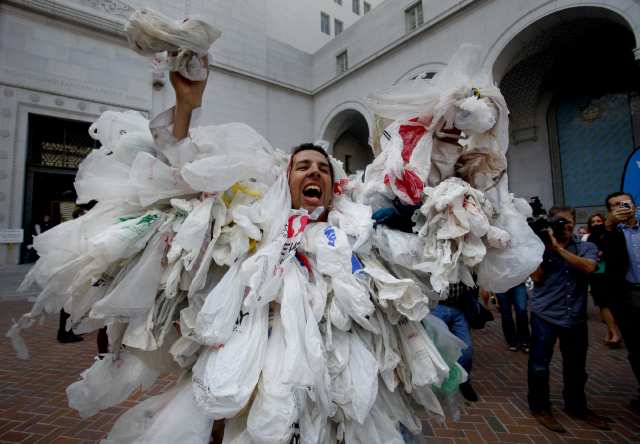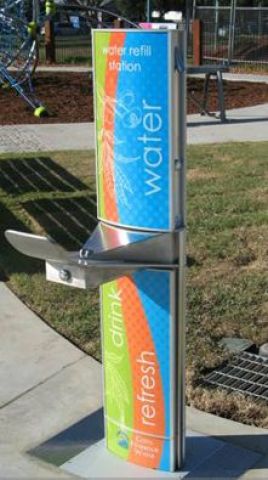- Details

Los Angeles became the largest city in the USA Wednesday to approve a ban on plastic bags at supermarket checkout lines, handing a major victory to clean-water advocates who sought to reduce the amount of trash clogging landfills, the region’s waterways and the ocean.
- Details
 Reusable water bottles are an environmentally friendly and cheaper alternative to buying water in plastic bottles. And this summer there will be a great reason to make sure you have your reusable bottle on you at all times.
Reusable water bottles are an environmentally friendly and cheaper alternative to buying water in plastic bottles. And this summer there will be a great reason to make sure you have your reusable bottle on you at all times.
Before the summertime heat arrives, hydration stations will start popping up around the City of Hamilton.
- Details
 In March of 2002, Republic of Ireland became the first country to introduce a plastic bag fee, or PlasTax. Designed to rein in their rampant consumption of 1.2 billion plastic shopping bags per year, the tax resulted in a 90% drop in consumption, and approximately 1 billion fewer bags were consumed annually. To complete the win-win scenario, approximately $9.6 million was raised from the tax in the first year, which is earmarked for a green fund established to benefit the environment. Several other countries and cities around the world are now considering implementing a similar tax, including UK, Australia and New York City.
In March of 2002, Republic of Ireland became the first country to introduce a plastic bag fee, or PlasTax. Designed to rein in their rampant consumption of 1.2 billion plastic shopping bags per year, the tax resulted in a 90% drop in consumption, and approximately 1 billion fewer bags were consumed annually. To complete the win-win scenario, approximately $9.6 million was raised from the tax in the first year, which is earmarked for a green fund established to benefit the environment. Several other countries and cities around the world are now considering implementing a similar tax, including UK, Australia and New York City.
- Details
 The Sargasso Sea and Bermuda’s important role in conserving this unique marine environment— especially the area within its waters — will be the subject of a lecture this week by world-renowned oceanographer Dr. Sylvia Earle [pictured].
The Sargasso Sea and Bermuda’s important role in conserving this unique marine environment— especially the area within its waters — will be the subject of a lecture this week by world-renowned oceanographer Dr. Sylvia Earle [pictured].
Dr. Earle will speak at the Bermuda Underwater Exploration Institute [BUEI] on Thursday, May 31.
- Details
 The Public Works Ministry is proposing that several Parks be reclassified as Nature Reserves, Minister of Public Works Michael Weeks said yesterday [May 25] in the House of Assembly.
The Public Works Ministry is proposing that several Parks be reclassified as Nature Reserves, Minister of Public Works Michael Weeks said yesterday [May 25] in the House of Assembly.
“A comprehensive mapping review of the park system has just been completed,” said Minister Weeks.
© 2018 Greenrock Bermuda | All Rights Reserved | Web Design & Development

